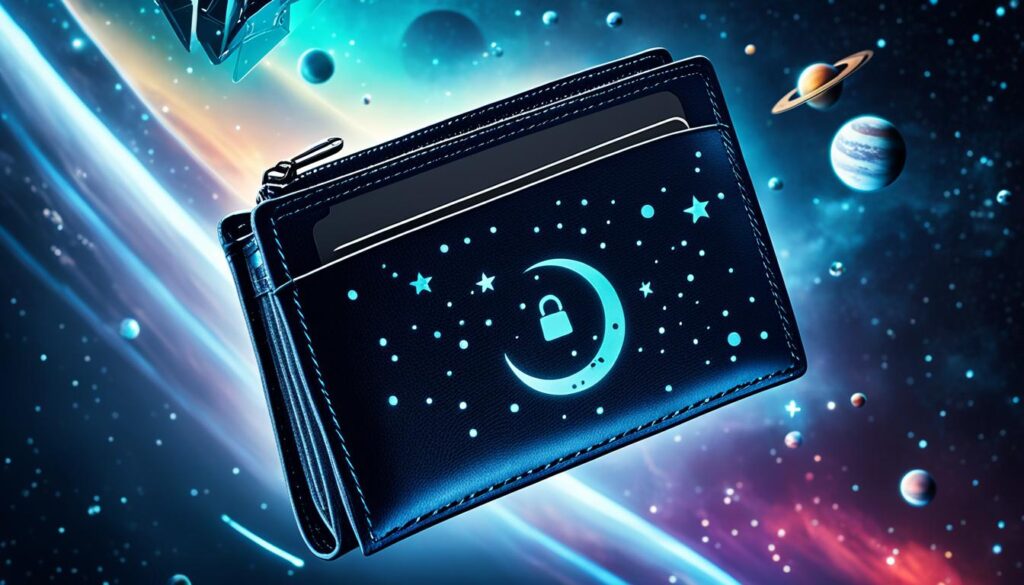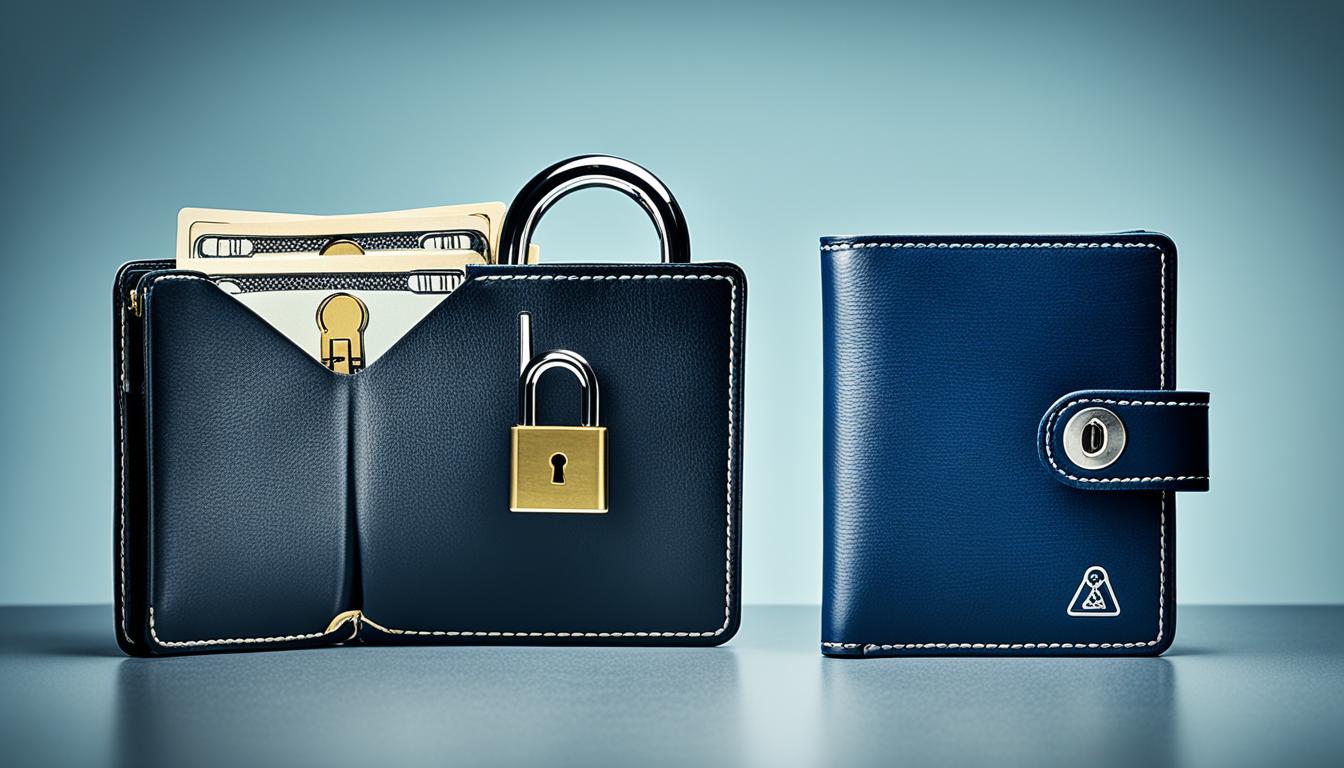Did you know that over 20% of all cryptocurrency hacks and thefts occur due to inadequate security measures in custodial wallets? Crypto wallets play a crucial role in safeguarding our digital assets, but the type of wallet we choose can have a significant impact on the level of control and security we have over our funds.
In this article, we will explore the differences between non-custodial wallets and custodial wallets, shedding light on their unique features, benefits, and risks. Whether you’re new to cryptocurrencies or an experienced investor, understanding the nuances of these two types of wallets is essential for ensuring the safety and control of your digital assets.
Key Takeaways:
- Non-custodial wallets give users complete control over their private keys and assets, providing enhanced security but demanding responsibility for safeguarding their crypto.
- Custodial wallets, on the other hand, rely on third-party control and offer user-friendliness and password reset options but come with security risks and limited control.
- When choosing a wallet, consider your preference for control, security, and responsibility over your crypto assets.
- Thorough research, including factors like regulation and backup options, should guide your decision to ensure the right balance between security and convenience.
- Both types of wallets have their pros and cons, and the choice depends on individual preferences and risk tolerance.
Understanding Custodial Wallets
Custodial wallets are crypto wallets that offer users the convenience of third-party control and user-friendliness. In a custodial wallet, a trusted third party, such as a crypto exchange, holds the user’s private keys on their behalf. This means that the responsibility for safeguarding the user’s crypto assets lies with the custodian.
Custodial wallets are particularly suitable for beginners who are new to cryptocurrency and may not be familiar with managing their own private keys. These wallets are designed to be user-friendly, providing a seamless and easy-to-navigate interface. They often offer password reset options, ensuring that users can regain access to their wallets in case they forget their password.
However, it’s important to note that custodial wallets also come with security risks. As exchanges holding private keys are prime targets for cybercriminals, there is an inherent risk of security breaches. In recent years, billions of dollars have been lost due to hacking incidents, emphasizing the importance of robust security measures.
When choosing a custodial wallet provider, users should prioritize trust and consider factors such as regulation, private key security measures, and insurance coverage. It is essential to choose a reputable institution that adheres to strict security protocols and regulatory frameworks to minimize the risk of potential losses.
Table: Pros and Cons of Custodial Wallets
| Pros | Cons |
|---|---|
| User-friendly interface | Potential security risks |
| Password reset options | User lacks direct control over private keys |
| Convenient for beginners | Dependent on the trustworthiness of the custodian |
The convenience and user-friendliness of custodial wallets make them a popular choice for individuals new to the world of cryptocurrencies. However, it is important to evaluate the risks and benefits before deciding to use a custodial wallet. By understanding the trade-offs and taking necessary precautions, users can make informed decisions that align with their personal preferences and level of comfort.
By understanding the features and nuances of custodial wallets, users can make informed choices that accommodate their needs and align with their risk tolerance. However, it’s important to remember that custodial wallets are only one option in the realm of crypto wallets. In the next section, we will explore non-custodial wallets and their unique advantages.
Exploring Non-Custodial Wallets
Non-custodial wallets offer users complete control over their private keys, empowering them to have direct control over their crypto assets. Compared to custodial wallets, non-custodial wallets provide a higher level of security since the user takes full responsibility for safeguarding their private keys.
Non-custodial wallets come in various forms, including browser-based wallets, software wallets, and hardware wallets. Hardware wallets, such as USB thumb drives, offer the highest level of security as they store private keys offline, protecting them from hackers.
One essential feature of non-custodial wallets is the provision of a recovery phrase or seed phrase. Users are given a unique set of words that serve as a backup in case they lose access to their wallet. This recovery phrase allows users to restore their wallet and regain access to their funds.
However, it’s crucial to note that losing the private key, wallet, and seed phrase can result in irreversible loss of funds. Therefore, it’s of utmost importance for users to securely store their private keys and recovery phrases, ensuring they are protected from loss or theft.
Non-custodial wallets are often preferred by experienced crypto users who prioritize control over their assets and are willing to invest the time and effort to understand the technical aspects of advanced wallet features.

Conclusion
When it comes to choosing a crypto wallet, the decision between custodial wallets and non-custodial wallets ultimately boils down to your personal preference and priorities. Custodial wallets offer user-friendly features and the convenience of password reset options, making them ideal for beginners in the crypto space. However, they come with security risks and require trust in the custodian, as they control your private keys.
On the other hand, non-custodial wallets provide enhanced security and give you complete control over your private keys, ensuring that only you have access to your crypto assets. While they may require more technical knowledge and responsibility to safeguard your private keys, they offer peace of mind and protect you from exchange hacks or bankruptcy.
It is essential to consider factors such as security measures, regulation, and backup options before making a decision. Conduct thorough research to understand the features and limitations of both types of wallets to determine which suits your needs best. Keep in mind that control, security, and responsibility are key considerations in choosing a wallet that aligns with your user preference.

Leave a Reply